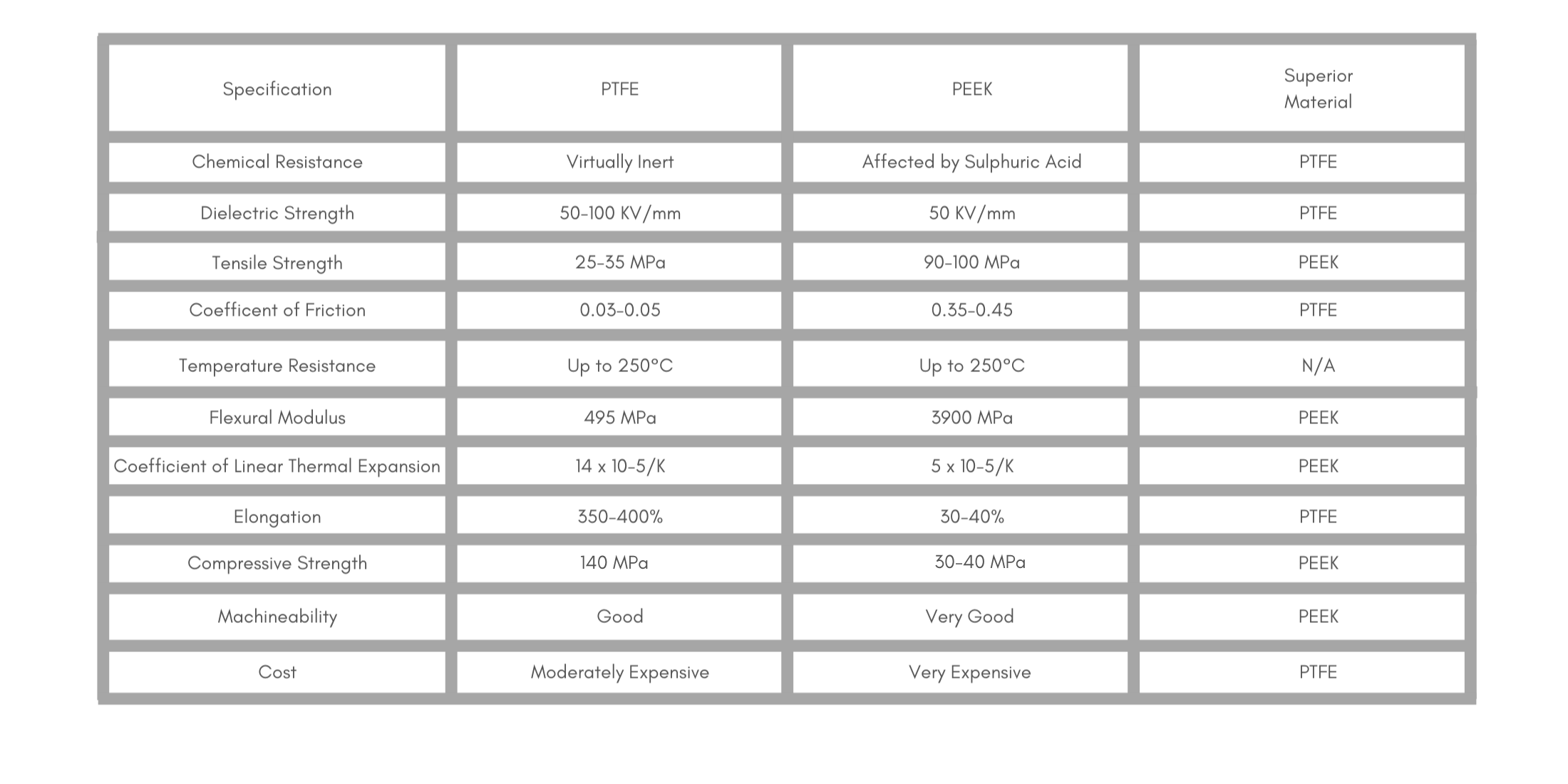PTFE vs PEEK
November 2020

High-Performance Plastic are distinguished primarily by their temperature stability, but also their mechanical properties.
Often chosen for applications requiring good chemical resistance, performance at high temperatures, low coefficient of friction and high strength they can be found in many demanding applications across a variety of industries such as Oil & Gas, Aerospace, Nuclear and Chemical, but how do you decide which material has the properties required for your specific application?
PTFE is a versatile and cost effective material of average tensile strength. It has very good thermal properties and excellent chemical inertness, especially to strong acids. The coefficient of friction is unusually low and believed to be lower than any other solids. PTFE is an outstanding electrical insulator over a wide range of temperatures and frequency.
PTFE is a thermoplastic. However due to its high viscosity, PTFE cannot be processed using conventional polymer processing techniques. Hence, PTFE is processed by cold shaping operation followed by heat treatment (sintering) during which polymer particles fuse to form a solid moulding.
PEEK is a semicrystalline thermoplastic with excellent mechanical and chemical resistance properties that are retained to high temperatures. It is highly resistant to thermal degradation as well as attack by both organic and aqueous environments.
PEEK is attacked by halogens and strong acids as well as some halogenated compounds and aliphatic hydrocarbons at high temperatures. It dissolves completely in concentrated sulfuric acid at room temperature.
PEEK can be processed by conventional methods such as injection molding, extrusion, and compression molding. PEEK is a much higher price polymer but provides value by offering the possibility of manufacturing parts that provide properties including lightweight, strength or toughness and the ability to survive longer in harsh environments.

To find out how we can support your projects contact info@fluorocarbon.co.uk










